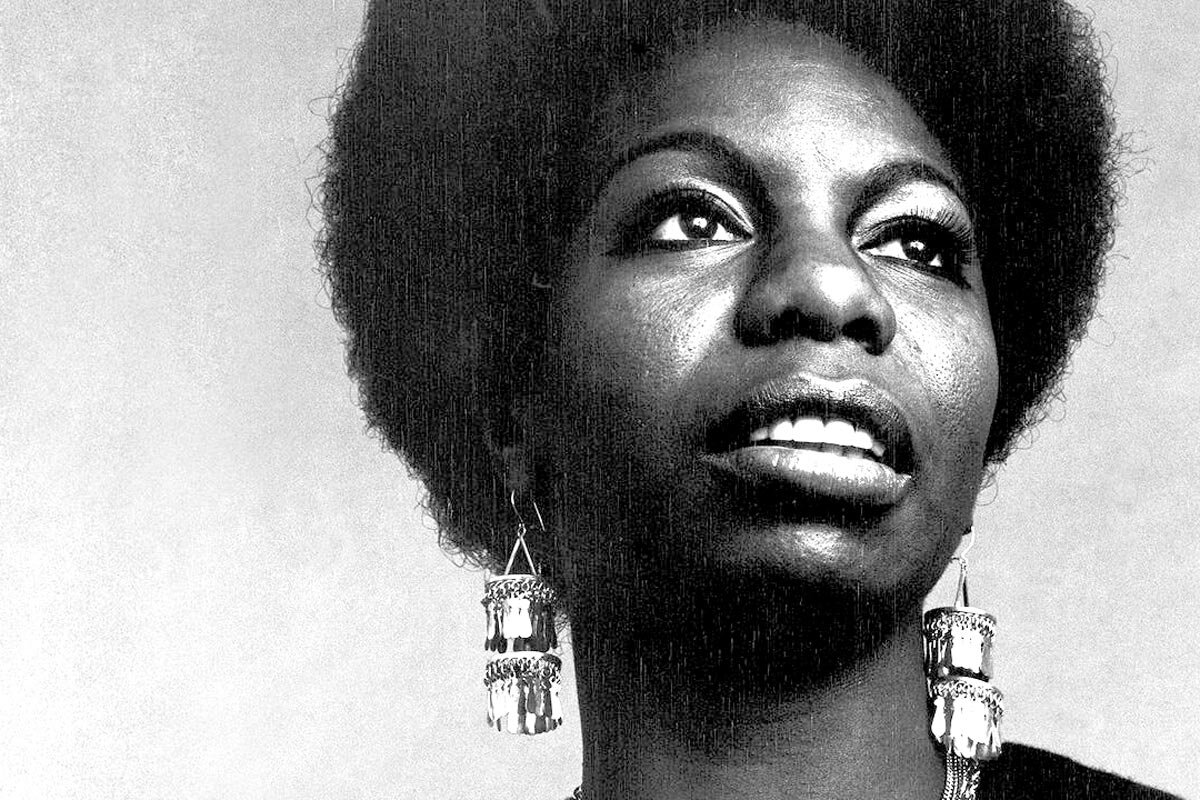Nina Simone: A Retrospective of a Brilliant and Committed Artistic Journey
The first time I heard about Nina Simone was, believe it or not, in a French novel (one of my favorite books by the way) called En attendant Bojangles, the title deriving from Nina Simone’s beautiful song “Mr Bojangles.” It throws me right into Simone’s unique and intemporal universe. Watching What Happened Miss Simone? (which I recommend) allowed me to discover the dark backstage of her success and of her civil rights engagement. In addition to my passion for this artist, my desire to cover Nina Simone’s career will echo the resurgence of the Afro-American Civil Rights Movement in the US thanks to the Black Lives Matter Movement.
A Musical Genius
Nina Simone’s grandeur can only be fully appreciated by looking back at her talent as a musician. Before starting off as a singer, Simone aspired to become a classical pianist. Indeed, music was a part of her life from her birth and until her last breath. She learned the piano at a very young age and sang in her church’s choir. She dreamed of becoming the first Black classical pianist but did not get the chance to obtain a scholarship to join the Curtis Institute, most likely because of her skin color. This significant failure did not stop her, though, and even gave her the impetus she needed to become one of the greatest jazz singers of the 20th century. Her career as a singer began in Atlanta’s night clubs and bars where her talent was recognized by Bethlehem Records, who recorded her first song. From thereon, her career kicked off and shed light on the peculiarity of her bewitching low-tone voice, her charismatic way of performing, the richness of her texts, and her varied style that straddles jazz, blues, and soul. Among her biggest successes are her versions of “Feeling Good” and “I Put a Spell on You,” which are two pure-jazz jewels.
A Political Activist
Listening to Nina Simone is not only a marvelous musical trip but also a poignant entry into the reality of racial injustice in the United States in the 1960s. Her powerful texts notably testify for her engagement in favor of civil rights for Black people. Three of her songs, which range amongst my favorites, are worth presenting.
“I Wish I Knew How it Would Feel to be Free”
This song was written in 1967 and denounces racism while particularly emphasizing freedom as a key human right claimed by the Afro-American community. Although the title and the whole text of this song are rather hard and serious, its musicality does not follow the same trend. The melody is rather catchy, joyful, and full of life and hope. It is indeed punctuated by finger snaps, a rather jazzy and dynamic piano, and trumpets. It conveys a strong message but tinged with positivity, which in my opinion is the strength of this song.
“Ain’t Got No (I Got Life)”
This song was written in 1968 and is one of the songs that purely embodies her fight against racism. Through an extensive use of the anaphor “Ain’t got no,” she denounces the dehumanization of the African-American community rooted in the United-States’ past. The low-key music accompanying the first part of this song contributes to the severity of the subject in question and contributes to its denunciation. Progressively, though, the song evolves towards some form of hope and when she starts using “Got” instead of “Ain’t got no” to remind listeners that she is, indeed, a human being who deserves respect and freedom.
“Why? (The King of Love Is Dead)”
This song was also written in 1968, as a tribute to Dr Martin Luther King’s death. This text embodies, to me, the sadness and despair of the entire Black community at that moment. The simplicity of the accompaniment and the stillness of her voice make it truly powerful. It may be the most poignant and touching song she ever performed.
Reflection on Artistic Genius
That being said, it is worth highlighting that Nina Simone was an artistic genius by the paradox she embodied. Simone was just as much a tormented, rebellious, tortured, unhappy personality as a soothing, bewitching, sensitive artistic soul who was endowed with a form of delicacy. When thinking about it, it may finally be this paradox, this ability to communicate emotions that are not hers and to give birth to heartwarming emotions from suffering, that could be the source of artistic genius.
Nina Simone was and will remain hope, perseverance, immoderation, non-conventionalism, and perhaps what best defines jazz.
Louise is currently a Second Year interdisciplinary student enrolled in a Bachelor of Arts and Sciences (BASc) at University College of London, and is highly interested in current affairs, politics, and law, and is passionate about music and cinema.











